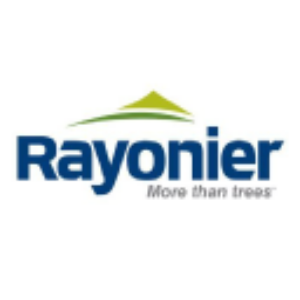Rayonier Announces Additional Pore Space Lease Agreements with ExxonMobil
- None.
- None.
Insights
The expansion of pore space lease agreements between Rayonier and ExxonMobil signifies a strategic move within the carbon capture and storage (CCS) domain. Economically, this collaboration leverages Rayonier's land assets for CCS, a technology critical in mitigating climate change impacts. The deal reflects a growing market for natural solutions to greenhouse gas emissions, potentially offering Rayonier a diversified revenue stream.
From an environmental economics standpoint, the valuation of natural assets like forests for CCS purposes introduces new dynamics in ecosystem services markets. The underlying long-term benefits may include enhanced corporate reputation, access to carbon credits and alignment with global sustainability goals. However, the scale of impact on Rayonier's financials will depend on the evolving regulatory frameworks and carbon pricing mechanisms.
Rayonier's increased acreage under pore space lease agreements with ExxonMobil underscores a commitment to environmental stewardship and positions the company at the forefront of land-based climate solutions. Sustainability analysts would highlight the potential for Rayonier's forests to serve as significant carbon sinks, aligning with investor interest in companies contributing to a low-carbon economy.
Moreover, engagement in CCS projects can enhance Rayonier's Environmental, Social and Governance (ESG) credentials, which are increasingly relevant to investors. The success of such initiatives, however, hinges on the effectiveness and efficiency of the CCS technology employed, as well as public acceptance of the long-term storage of CO2 beneath forest lands.
The role of Rayonier's timberlands in ExxonMobil's CCS strategy can be seen as an innovative use of forest resources beyond traditional timber production. As a forestry management expert, one would evaluate the impact of these leases on forest health and productivity. Sustainable management practices must be maintained to ensure that the ecological integrity of these forests is not compromised.
Furthermore, the integration of CCS into forestry operations may necessitate new management protocols to balance carbon sequestration goals with timber production. This could involve assessments of forest carbon stocks and monitoring changes over time, an area that is still developing within the field of forestry science.
WILDLIGHT, Fla.--(BUSINESS WIRE)--
Rayonier (NYSE:RYN) today announced that it has entered into additional underground pore space lease agreements with ExxonMobil covering approximately 33,000 acres of timberlands in
“We view this as an important milestone as we continue to advance initiatives that accelerate the world’s path to net zero,” said David Nunes, CEO of Rayonier. “We are pleased to have this relationship with ExxonMobil, the leader in carbon capture and storage in the US. We believe our timberland portfolio is well-positioned to benefit from the transition to a low-carbon economy, and we are pursuing various opportunities to realize value from the land-based solutions offered by our forests.”
About Rayonier
Rayonier is a leading timberland real estate investment trust with assets located in some of the most productive softwood timber growing regions in
View source version on businesswire.com: https://www.businesswire.com/news/home/20240221479498/en/
Investors: Collin Mings, investorrelations@rayonier.com, 904-357-9100
Media: Alejandro Barbero, alejandro.barbero@rayonier.com
Source: Rayonier Inc.







